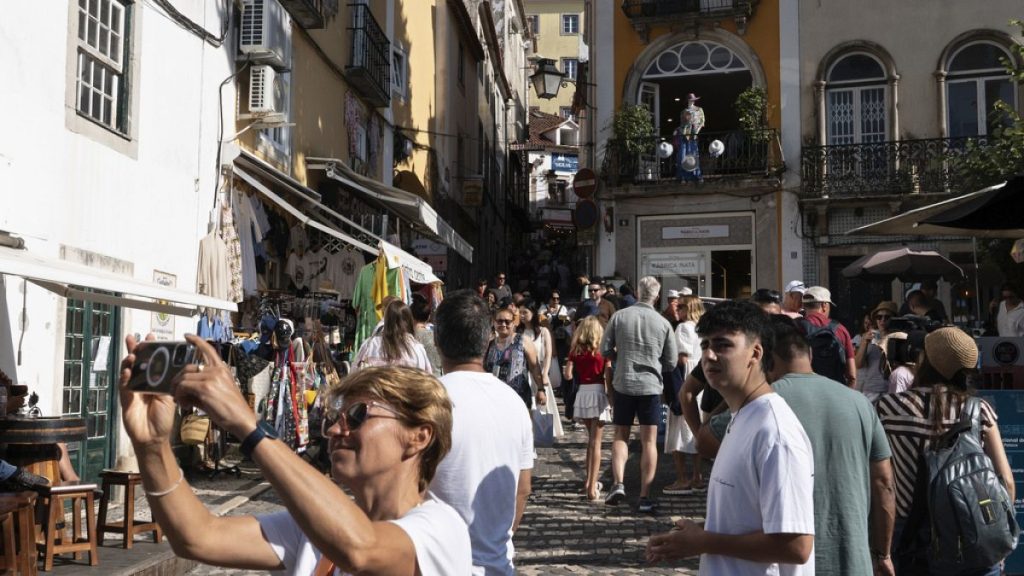Portugal has seen a significant increase in tourism, with three million visitors in June alone, representing a 6.7% jump from the month before. The rise of tourism in the country has led to certain challenges for locals, particularly in the capital city of Lisbon. Residents like Rosa Alves have noted a significant increase in traffic, particularly from tuk-tuks, which clog the narrow streets. The influx of tourists has also led to changes in the neighborhood, with more holiday rentals and strangers moving in, causing some residents to feel like their community is being overrun by visitors.
The issue of overtourism is not unique to Lisbon, but rather a global trend that is expected to peak in 2024, as travel surges post-pandemic. The World Travel and Tourism Council predicts significant growth in Portugal’s tourism sector, creating more jobs but also driving up property prices and pushing locals out of the housing market. Anti-tourism protests have emerged in various destinations, with activists in Sintra expressing concerns about the impact of tourism on their community. Some are advocating for “quality tourism,” which emphasizes more respectful behavior from visitors and a greater consideration for locals’ needs.
The term “overtourism” refers to the point at which tourism stops benefiting residents and starts causing harm, by overwhelming infrastructure, degrading historic sites, and driving up housing prices. This phenomenon is not limited to Portugal but is a global issue, with short-term rentals like Airbnb playing a significant role in driving up housing costs. Some locals are pushing for a more sustainable form of tourism, where visitors are more considerate and respectful of the communities they visit. The United Nations’ tourism agency has predicted a significant increase in international tourism, particularly in Europe, despite the challenges posed by overtourism.
In response to the challenges posed by overtourism, some locals are taking matters into their own hands, using social media and mass protests to demand better management of the tourism industry from their leaders. The goal is not to scare away tourists but rather to ensure that their needs are balanced with the needs of residents. Issues such as housing prices, traffic congestion, and water management are all on the agenda for those pushing for a more sustainable form of tourism. By engaging visitors in the conversation and advocating for more responsible travel behavior, locals hope to find a solution that benefits both residents and tourists alike.


